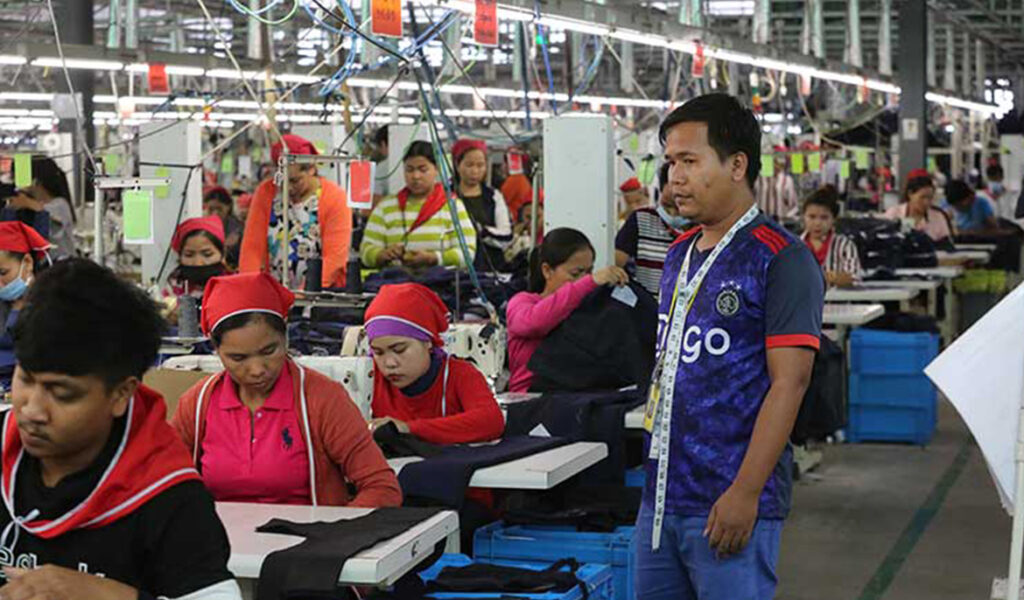The Cambodian economy is demonstrating signs of an overall rebound in 2024, spurred by improving liquidity and improving export demand, says a recently released report, titled ‘Economic Snapshot and Outlook 2024’ by investment advisory firm, Mekong Strategic Capital (MSC).
The positive outlook for 2024 and beyond follows a significant slowdown which dampened overall economic growth and domestic demand from mid-2022, according to the firm’s findings.
In regards to market liquidity, the latest MCS report detailed that in recent periods global financial tightening had caused a significant reduction of liquidity in the Kingdom’s financial sector.
This tightening, most visible in 2022’s second half when new loan disbursements were at their lowest, led to stagnation in new loan growth by Cambodian-based banks and financiers, and such reduced incoming capital muted domestic demand.
Increases in non-performing loan rates were also visible in this period, as well as high rates of loan arrears, further reducing new lending.
However, the liquidity situation is improving this year, according to the MCS report’s findings.
In the banking sector, the interest rate cycle has already peaked, according to the report, and compared to last year, the Cambodian financial market is now ‘awash in liquidity’.
However, the report also noted that while a significant proportion of lenders remain focused on pre-existing loan repayments as opposed to new loans acquisition, credit growth is likely to remain subdued in upcoming periods due to limited new uptake.
Loan arrears also remain high according to the report, citing that as of mid 2024 one in 13 lenders were behind on loan repayments and in arrears for more than 30 days.
However, this statistic is predicted to improve in the second half of the year and beyond as household income strengthens, alongside falling interest rates.
The MCS report explained that customer deposits are also rising again in recent periods, growing by an annualized 20 percent in the first half of this year.
Recent trends in garment, textiles and footwear (GTF) exports, a core facet of Cambodia’s export economy as well as a key income provider for the working class population, were also considered in the MCS report as positive signs for an overall economic recovery in 2024.
The report explained that the garment sector saw a significant downturn from the second half of 2022 until late 2023, which caused a notable reduction in the economy’s overall growth.
The MCS report suggested that the GTF sector is demonstrating signs of a recovery in recent periods, citing a 19 percent increase in such exports in the first seven months of this year, in comparison to 2023’s first seven months.
Supporting this observation, a recent Ministry of Commerce (MoC) report confirmed that the nation exported $6,246 million worth of GTF in the first half of 2024, an increase of 16.5 percent from $5,360 million recorded in the same period in 2023.
While the MSC report confirmed the GTF sector’s role in the nation’s overall economic recovery in recent periods and a positive midterm outlook, it also highlighted that the sector of the economy remains somewhat volatile, and suggested caution is necessary moving forward.
MSC noted potential risks regarding US origin rules, for instance, which could quickly dampen the GTF sector’s growth in coming periods.
The MSC report said that future growth is likely to be driven by factors including ongoing diversification within the manufacturing sector, along with infrastructure investments.
The report lauded Prime Minister Hun Manet’s administration for attracting new and increasingly diversified investments, which are expected to strengthen the economy considerably in the mid to long term.
The report also suggested that more fiscal stimulus may be necessary to support domestic demand, which remains low in 2024 despite increasing liquidity and alongside instability in the global economy.



